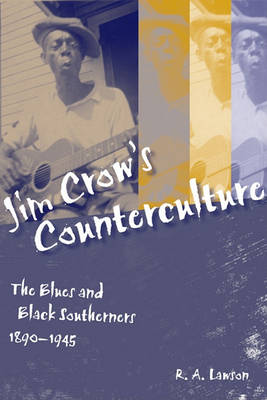Making the Modern South
1 total work
Jim Crow's Counterculture
Published 1 November 2010
In the late nineteenth century, black musicians in the lower Mississippi Valley, chafing under the social, legal, and economic restrictions of Jim Crow, responded with a new musical form, the blues. In Jim Crow's Counterculture, R. A. Lawson offers a cultural history of blues musicians in the segregation era, explaining how by both accommodating and resisting Jim Crow life, blues musicians created a counterculture to incubate and nurture ideas of black individuality and citizenship. These individuals, Lawson shows, collectively demonstrate the African American struggle during the early twentieth century.
By uncovering the stories of artists who expressed much in their music but left little record in traditional historical sources, Jim Crow's Counterculture offers a fresh perspective on the historical experiences of black Americans and provides a new understanding of the blues: a shared music that offered a message of personal freedom to repressed citizens.
By uncovering the stories of artists who expressed much in their music but left little record in traditional historical sources, Jim Crow's Counterculture offers a fresh perspective on the historical experiences of black Americans and provides a new understanding of the blues: a shared music that offered a message of personal freedom to repressed citizens.
